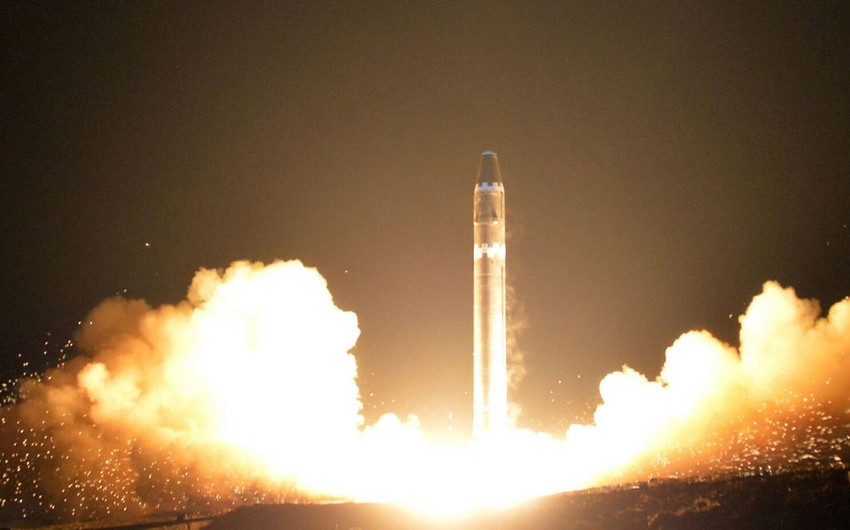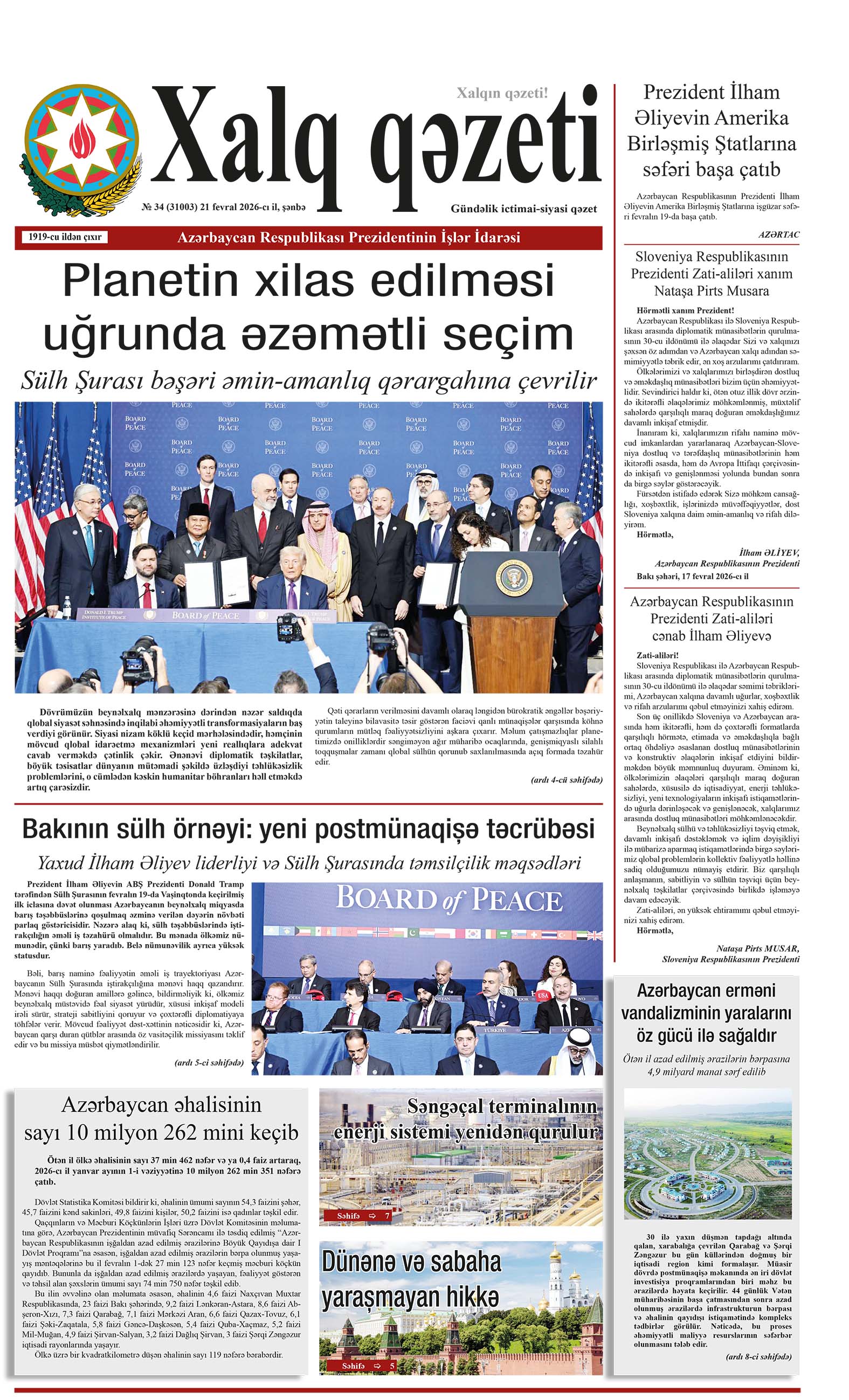North Korea fired an ICBM-class missile on Monday with a range capable of reaching anywhere in the United States, a Japanese official said, marking its second missile launch in hours as Pyongyang condemned a US-led show of force as "war" moves, Report informs via Reuters.
The ICBM missile has a potential to travel more than 15,000 km, meaning it can reach anywhere in Japan and the mainland United States, Japan's Parliamentary Vice Minister of Defense Shingo Miyake said.
Last week, South Korea warned the North may be readying to launch an intercontinental ballistic missile (ICBM). Seoul's Joint Chiefs of Staff said Monday's missile was fired from an area near the capital Pyongyang towards the sea off the North's east coast and flew about 1,000 km.
Japan's defence ministry reported the flight lasted 73 minutes, just short of the 74 minute flight by an ICBM North Korea fired in July. It reached a maximum altitude of more than 6,000 km and fell into the sea west of Hokkaido outside Japan's exclusive economic zone, Japan said.
A missile fired at a lofted trajectory with such an apogee likely means the projectile is capable of reaching 15,000 km on a normal trajectory, according to expert analysis of previous North Korean long-range missile tests.
Such launches underscore the North's efforts to advance its arsenal with longer range weapons that could potentially reach the mainland United States.
The area near the international airport serving Pyongyang is where the North previously launched ICBMs and is suspected to be the location of a missile assembly facility.
The North's latest, solid-fuel Hwasong-18 ICBMs have been launched from near Pyongyang, at a grass field that analysts said is likely reinforced with concrete for the heavy launch vehicle.
Monday's missile launch came after North Korea fired a short-range ballistic missile on Sunday night, flying about 570 km and falling into the ocean.
North Korea followed up that launch with a fiery statement condemning the United States for orchestrating what it called a "preview of a nuclear war," including the arrival of a nuclear-powered submarine in South Korea on Sunday.

















